Declaration of Independence: The Beginning of Freedom
Colonizing of America
Setting the Stage
Advance of a Diplomatic Resolution
War Between Nations
Influencing Nations
Written Work
Setting the Stage
Throughout the 1760s and early 1770s, Americans felt conflicted over the rule of the British Empire and deemed the treatment they received from their mother country was unfair. Although Americans had long complained that British laws regarding the colonists were unjust, the British government had refused to address these complaints.
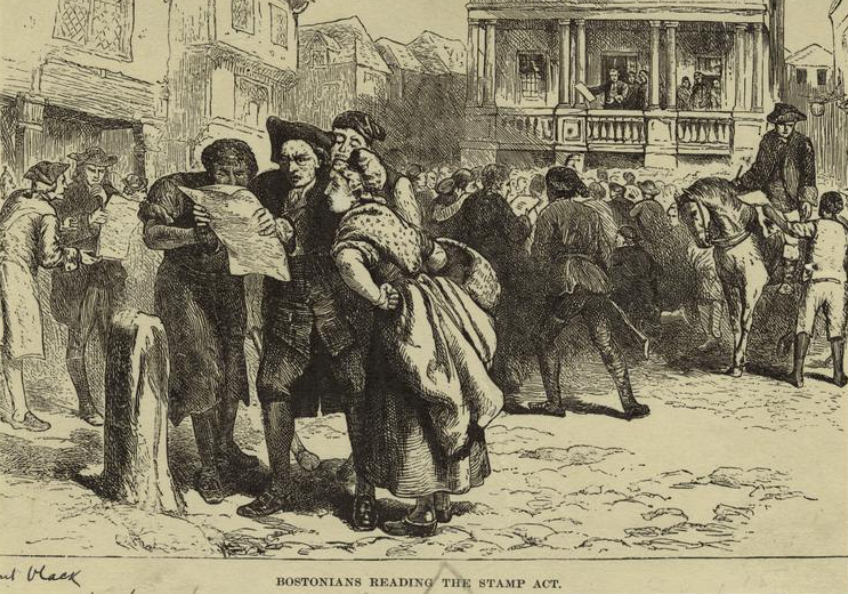
“Bostonians reading the stamp act” From The New York Public Library.
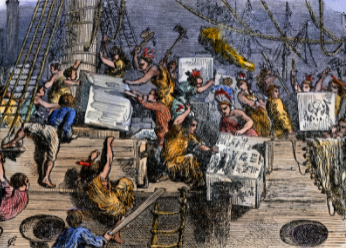
Boston Tea Party (December 16, 1773), Britannica
After the French and Indian War, the British had spent much of their funds. Great Britain, in an attempt to regain the money they lost, taxed the 13 colonies. Americans disliked this, resulting in many protests and riots. One example is the Boston Tea Party, when patriotic Americans disguised as Mohawk Indians dumped copious amounts of tea from the British East India Company into the water. Similar incidents sparked a debate on whether the colonies should separate from Great Britain.
"... tensions had been building between colonists and the British authorities. The French and Indian War, or Seven Years’ War (1756-1763), brought new territories under the power of the crown, but the expensive conflict lead to new and unpopular taxes. Attempts by the British government to raise revenue by taxing the colonies (notably the Stamp Act of 1765, the Townshend Acts of 1767 and the Tea Act of 1773) met with heated protest among many colonists."
~ History.com
"The Colonies’ Unsuccessful Attempt to Reconcile with England" From Americana Corner, 2021
People from different social groups, classes, races, and more debated this proposition. Many colonists believed their freedom was worth the fight, while others argued for remaining under British rule. Robert Morris, a delegate from Pennsylvania, stated in a letter to Joseph Reed, “I have uniformly Voted against & opposed the declaration of Independence because in my poor opinion it was an improper time and will neither promote the interest or redound to the honor of America, for it has caused division when we wanted Union, and will be ascribed to very different principles than those which ought to give rise to such an Important measure.” But the opinions of the few who opposed independence had little impact on the majority of the people. Battles broke out between civilians and soldiers. On April 19, 1775, when the Battles of Lexington and Concord initiated armed conflict between Britain and the 13 colonies, Americans claimed they sought only their rights within the British Empire.
To convince more people to support the cause for independence, Thomas Paine wrote ‘Common Sense,’ a text reasoning that America should be independent of Britain to the public of the 13 Colonies. Paine’s timing was perfect; it inspired many to join and support the cause of independence, leading to the development of the Declaration of Independence.
'Common Sense' stated, “The authority of Great Britain over this continent is a form of government which sooner or later must have an end, and a serious mind can draw no true pleasure by looking forward, under the painful and positive conviction that what he calls ‘the present constitution’ is merely temporary.”
“The history of the present King of Great Britain is a history of repeated injuries and usurpations, all having in direct object the establishment of an absolute Tyranny over these States.”
~ The Declaration of Independence.
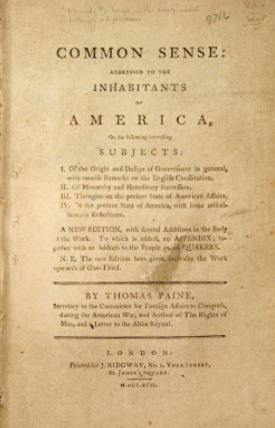
1792 printing of Thomas Paine’s Common Sense, Jamestown-Yorktown Foundation
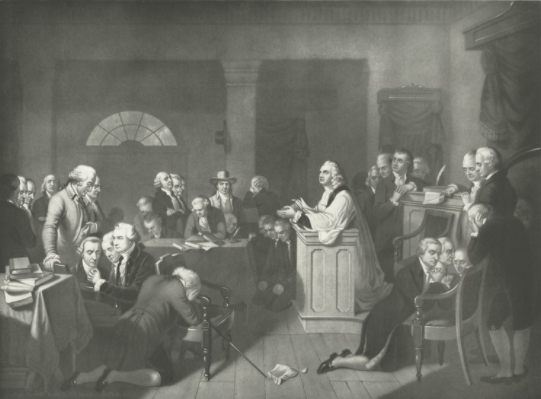
Continental Congress, 1774, NYPL.
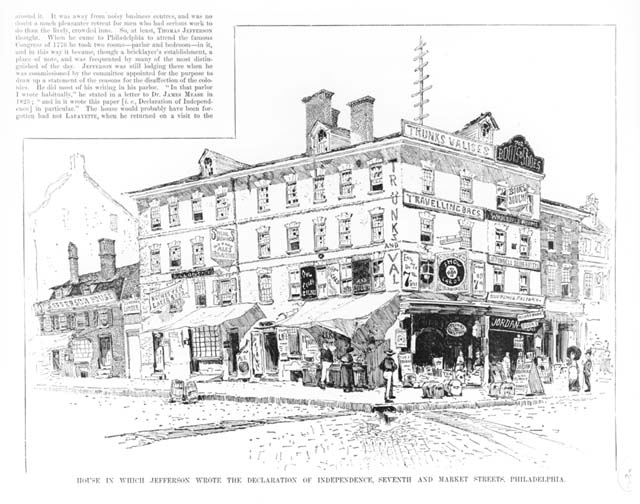
Harper's Weekly, April 7, 1883. Reproduction of journal page, Library of Congress
The house in which Thomas Jefferson drafted the Declaration.
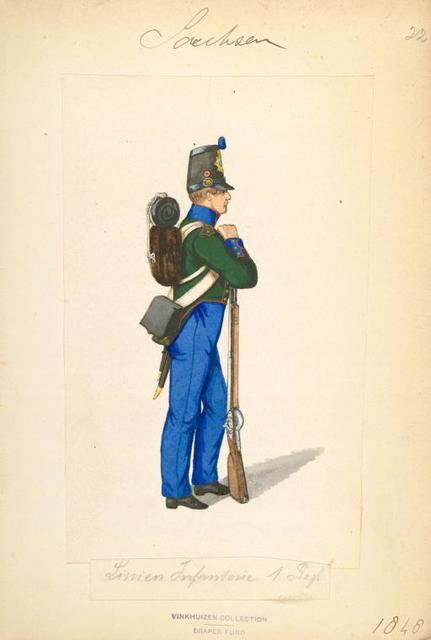
German Soldier 1771-1779, NYPL.
Debates were still going on over whether America should reconcile with Britain, but in 1776 several factors began to strengthen the call for separation. 'Common Sense' laid out a convincing argument in favor of independence, and those who wanted to reconcile with Britain were realizing that Britain was treating them as a foreign nation. These components changed many minds.
"And in May 1776 the Congress learned that the King had negotiated treaties with German states to hire mercenaries to fight in America. The weight of these actions combined to convince many Americans that the mother country was treating the colonies as a foreign entity. One by one, the Continental Congress continued to cut the colonies' ties to Britain."
~ National Archives
On June 7, 1776, Virginia delegate Richard Henry Lee put forth the resolution for independence. “Resolved, that these united colonies are, and of right ought to be, free and independent states…” A committee consisting of John Adams, Benjamin Franklin, Thomas Jefferson, Roger Sherman, and Robert R. Livingston was appointed to draft a document supporting independence. Jefferson drafted the document in his lodgings at 7th and Market Street, setting the stage for Congress to approve the Declaration of Independence and proclaim independence from Great Britain.